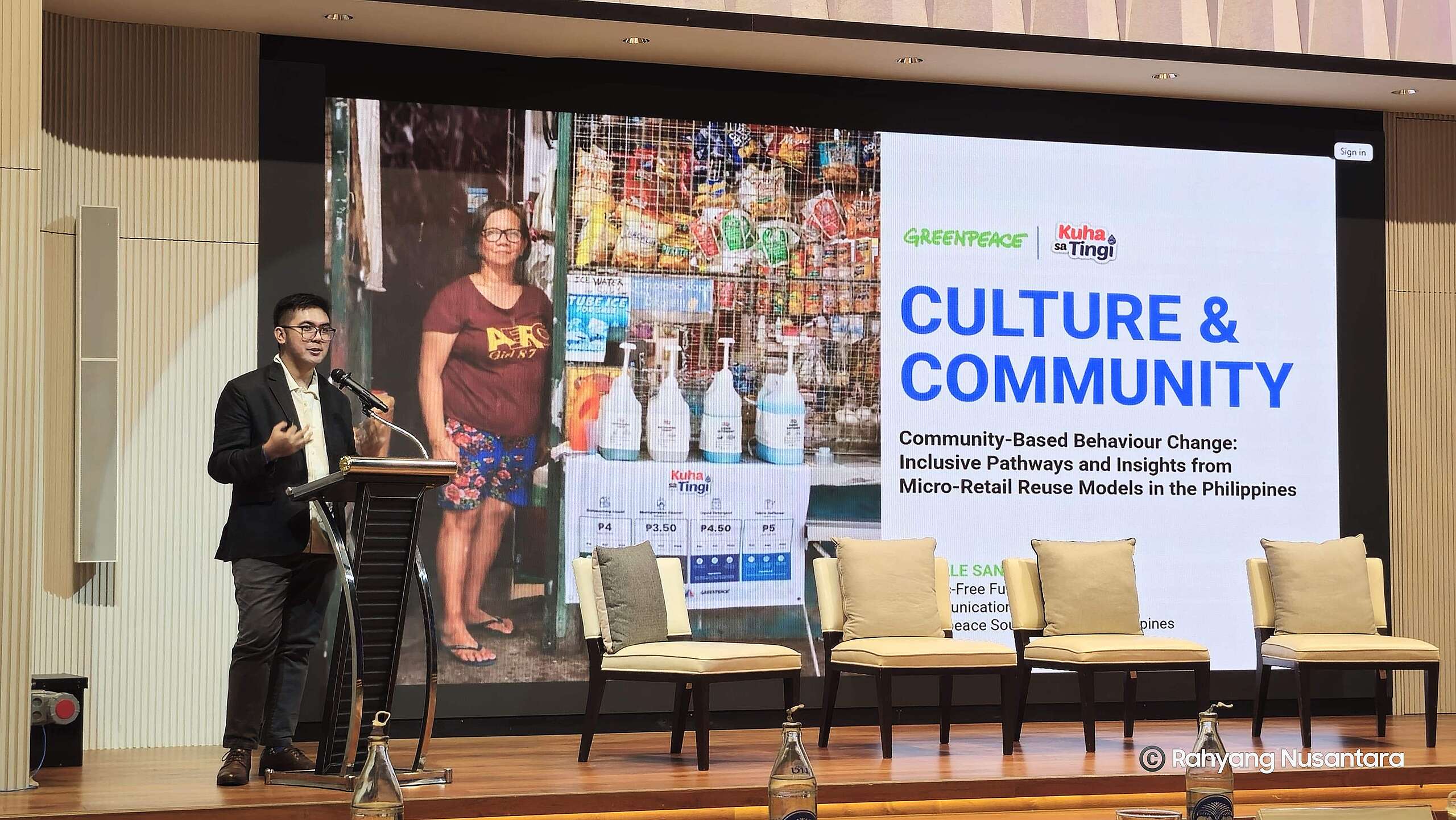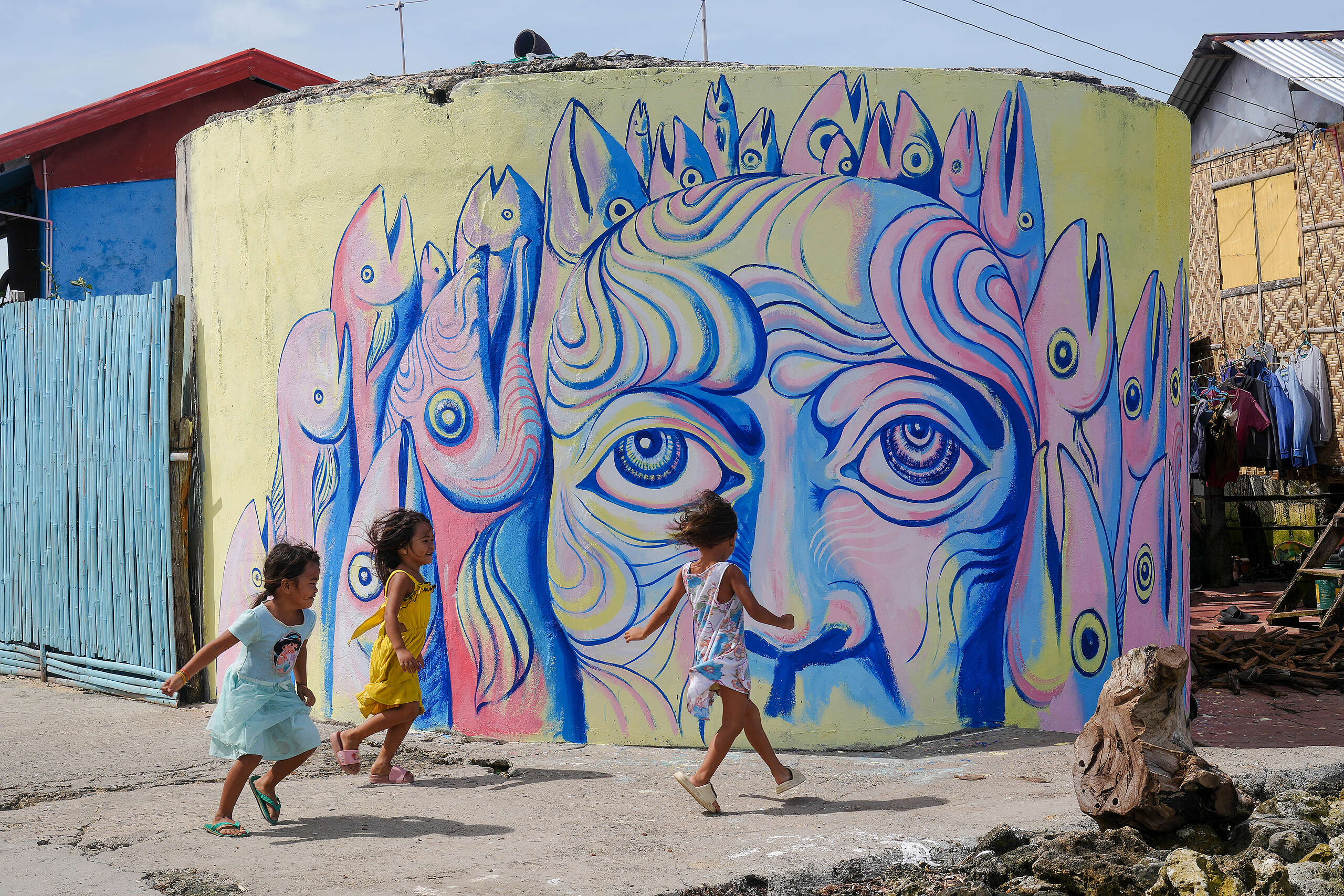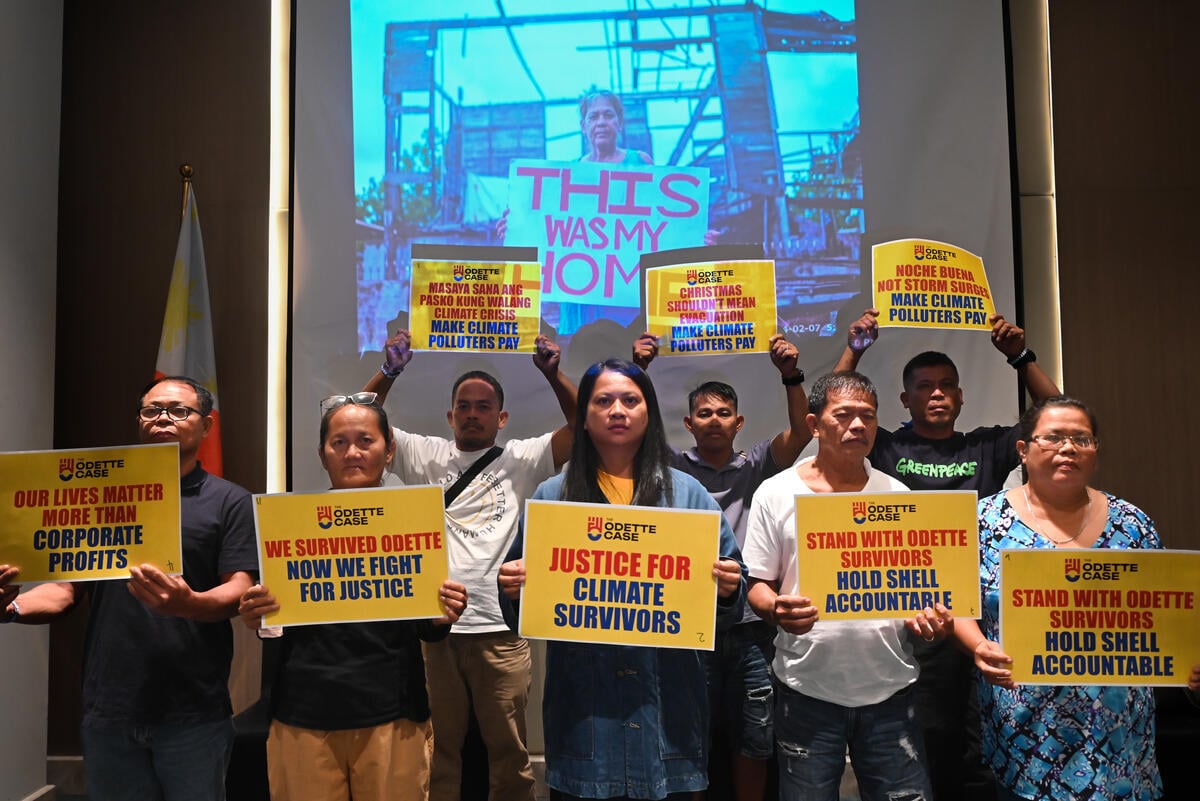Twelve years since Super Typhoon Yolanda struck, the typhoon still hasn’t left us. It lingers in our fears, in our memories, and in the way we brace for every new gust of wind.
And as we mark yet another year, the world prepares for COP30. But for those of us who have lived the cost of the climate crisis, the conversation feels achingly familiar.
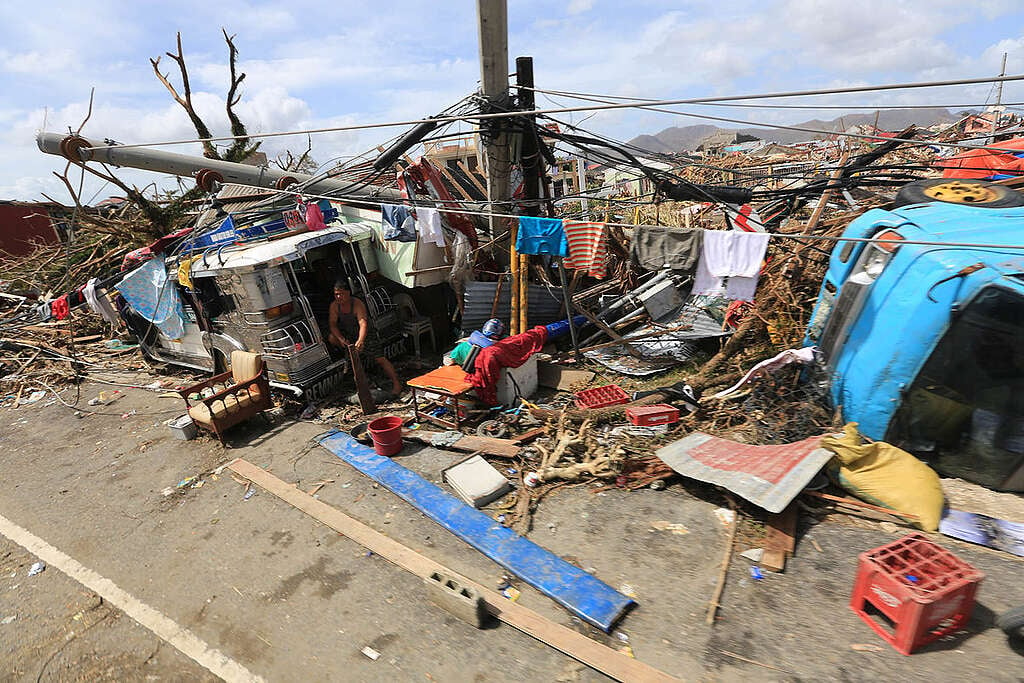
The Question That Lingers
In one of my talks last October, someone asked me a question that stopped me cold: “The campaign against the climate crisis has been going on for years now — why do we keep turning back to zero every time?”
I remember taking a deep breath — not because I didn’t know what to say, but because my body already knew the answer. That sigh carried exhaustion, grief, and frustration. It’s the same feeling that lives in many of us who have spent years trying to make sense of what “recovery” really means after disasters like Super Typhoon Yolanda.
Because even though the fight against climate change has never stopped, it still feels like we’re always starting over. Every new typhoon reminds us how fragile everything still is. Each time the wind howls or the power cuts out, I find myself asking: Does what we do still matter? Are we really moving forward? Or are we just surviving the same story again and again, carrying traumas that never had the chance to heal?
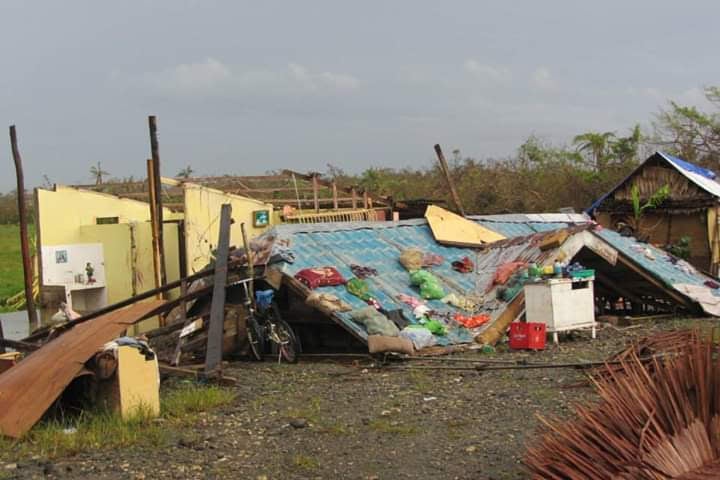
The Typhoon That I Remember
Five days before the twelfth anniversary of Super Typhoon Yolanda, Typhoon Tino swept through the Visayas and Mindanao.
It wasn’t as strong as Yolanda — but it didn’t have to be. The sound of the wind and rain was enough to make our bodies remember. It felt crushing, as if the same fear had come back to visit, right when we thought we’d finally learned to breathe again.
Even if our community was spared from massive destruction, the anxiety never left. We spent hours enduring the forceful winds, sitting in the dark with nothing but the sound of the piercing rain, guarding our roofs, and checking on loved ones to make sure they were safe. In other areas, people weren’t as fortunate — homes were swallowed by mud, children clung to each other through rising floodwaters, families searched desperately for food and clean water, and lives were once again claimed by the typhoon.
Watching it unfold felt painfully familiar. It was as if Yolanda never really left us. It just keeps returning under new names — stronger, stranger, harder to predict.
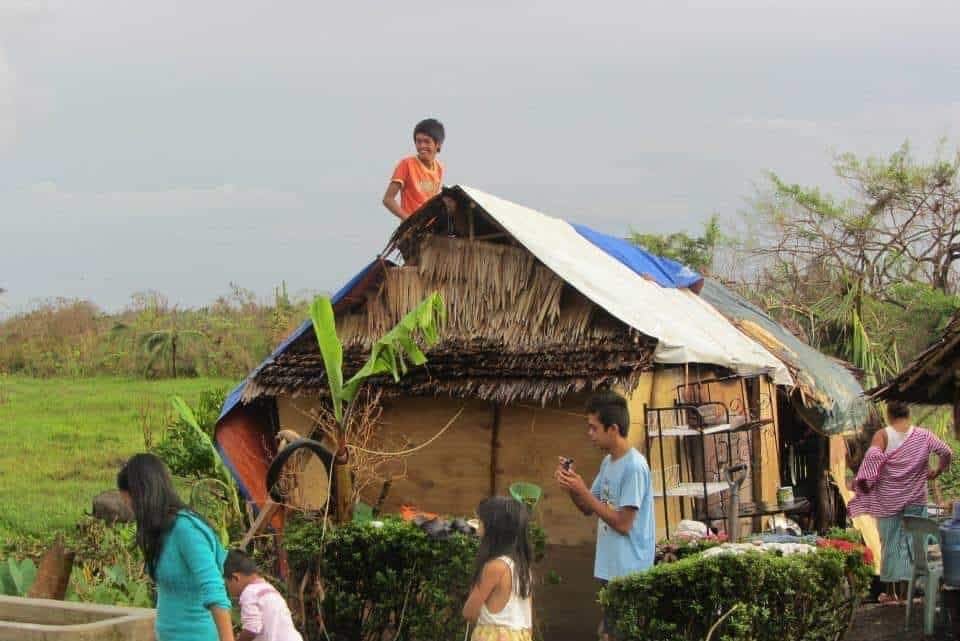
Twelve years ago, Yolanda forced the world to see climate change not as an abstract concept but as a lived reality. Today, the typhoons are fiercer, our people poorer, and the inequality between those who cause the problem and those who suffer from it has only deepened.
Beyond the Narrative of Loss
For years, we’ve heard people say that our stories humanize the climate science. That our experiences breathe life into the data and numbers that scientists present and leaders debate. And yes, that’s true.
We have told our stories everywhere — at the UN, at climate conferences, in classrooms and community halls — hoping our lived realities would stir something in those with the power to change the system.
And in some ways, it worked. Our experiences after Yolanda helped shape how the world now talks about resilience, disaster recovery, and loss and damage, etc.
But after twelve years, fatigue sets in. It’s exhausting to keep proving our pain just to make others care — to turn our grief into evidence for a truth that should already be undeniable. We have grown tired of using our suffering as proof of a scientific fact that should never have required lives lost to be believed. Tired of making our own struggles the story just so others will finally listen to what science has long been saying.
How many more deaths and drowned homes must it take before the richest 0.1% of the world accept that their inaction kills?
Our trauma should never be reduced to a case study or a talking point. It should be a wake-up call — a reason to act. We don’t need another super typhoon to awaken and shake people into caring.
The Global Stage and the Typhoon
As I write this, communities in the Visayas are still clearing mud and debris after
Typhoon Tino. And while this is happening, world leaders are preparing to meet in Brazil for COP30. At the same time, another potential super typhoon, Uwan, is looming and may hit the north of the Philippines.
That’s the cruel rhythm of our reality: while the world debates, we rebuild. While
negotiations happen in air-conditioned halls, we hammer nails into roofs, wrap our belongings, save our pets, and pray the next typhoon spares us.
This constant cycle of bracing, surviving, and rebuilding isn’t resilience — it
exhaustion.
And even as we’re forced to stay strong, the injustice deepens. The same industries and systems that created this crisis still thrive. The same structures that failed us twelve years ago remain unchanged.
From where we stand, waist-deep in floodwater, the global climate talks often feel distant. Leaders spend weeks defining terms — justice, adaptation, loss and damage, etc. — while communities like ours are trying to survive another disaster worsen by the climate crisis.
For those of us on the frontlines, climate justice is not charity — it’s accountability. We need real commitments, transparent climate finance, and safeguards to ensure that funds reach the people who need them — not the pockets of the powerful. At COP30, the conversations can’t just be about targets and pledges. They must also be about responsibility — about those who profit from pollution finally paying for the damage they caused.
Oxfam’s recent report, Climate Plunder: How a powerful few are locking the world into disaster, reveals that if everyone lived like the richest 0.1%, the planet’s entire carbon budget would be depleted in less than three weeks. Think about that — three weeks.
That’s how quickly inequality can destroy the planet.
The Corruption That Drowns Us
Here in the Philippines, the story feels even heavier. The corruption of our own leaders drowns us just as the floods do. The very funds meant to protect us like the climate adaptation projects, the flood control systems are pocketed by the same people who claim to serve us.
They turn every disaster into a business opportunity, every tragedy into a contract to be won. They hide behind legalities and glossy plans, but we see what it really is — disaster capitalism, at the expense of our safety and our lives.
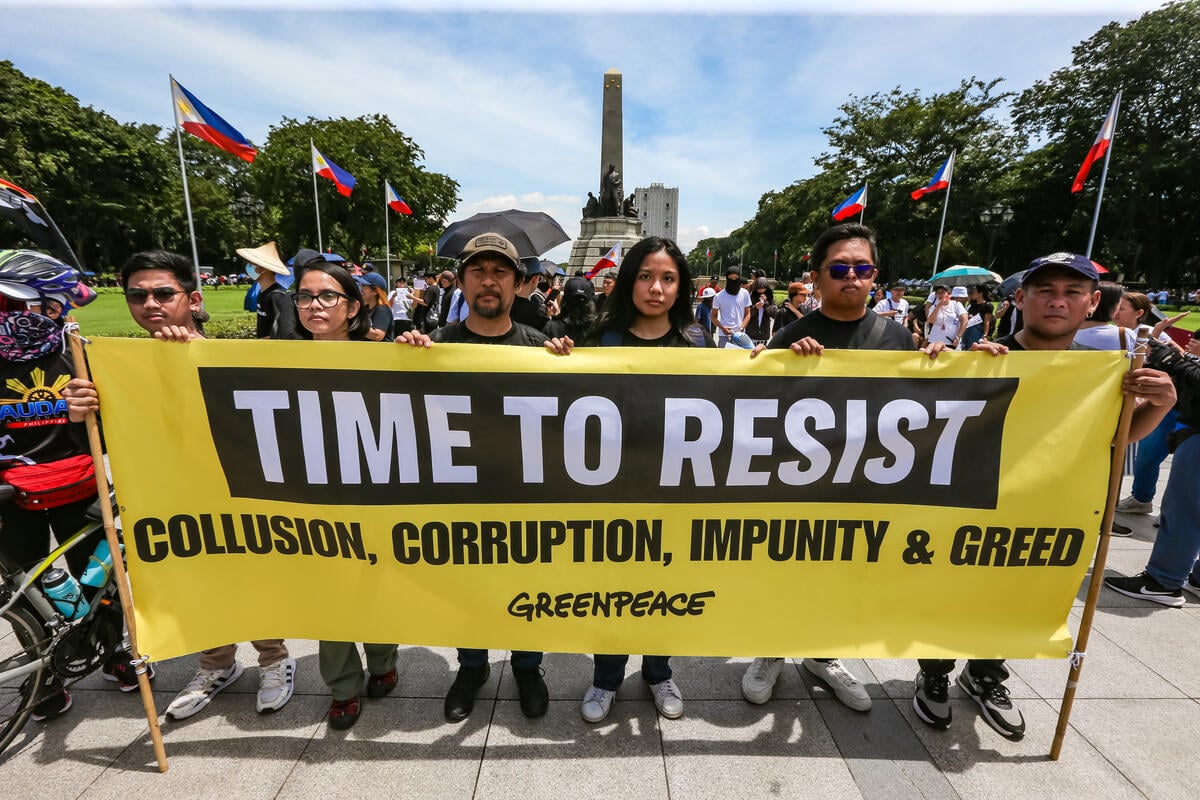
It hurts deeply to watch this unfold. To know that while we are hammering nails into our roofs, others are counting the money meant to keep us dry. The same greed that drives the world’s richest 0.1% to destroy the planet is alive here, too — in our towns, in our politics, in the hands of those who should have protected us.
How could they live so comfortably, feasting on the very money that drowns and kills us? How could they sleep soundly while our people wade through murky waters, clutching children, saving pets, praying the rain would finally stop?
It’s not just the typhoons that break us — it’s the betrayal that never ends. And
this betrayal is not isolated; it’s part of a much bigger system — one that rewards greed, normalizes inequality, and silences the vulnerable. This deep-rooted and historical inequality continues to bury communities like ours in a trap we can’t escape simply by being “resilient.”
We cannot keep celebrating their profits from the very inequality that sustains our suffering.
No Choice but to Keep Fighting
Beneath all the reports, summits, and negotiations, there are still human stories like ours.
We fight not only because we are fearless, but also because we have no choice. We fight with tired hearts and anxious minds, finding strength in one another — in shared grief, in shared hope.
Every new typhoon reopens the wounds of the last. We hammer nails into our roofs while shaking in fear, pack our bags while holding back tears, and cling to our neighbors as we pray the floodwaters don’t rise again.
People call that resilience. But to us, it’s survival — and survival shouldn’t have to be this hard.
I have always admired how strong our people are, but I also know it’s deeply unfair that strength has become our way of life.
Still, we keep going. Because no one else can tell our story but us. As Typhoon Tino fades and another typhoon looms, I think of the lives lost to Yolanda, the families displaced today, and the generations whose futures depend on what happens next.
Twelve years later, we are still here — bruised, battered, but unbowed. We endure not because we want to, but because we must.
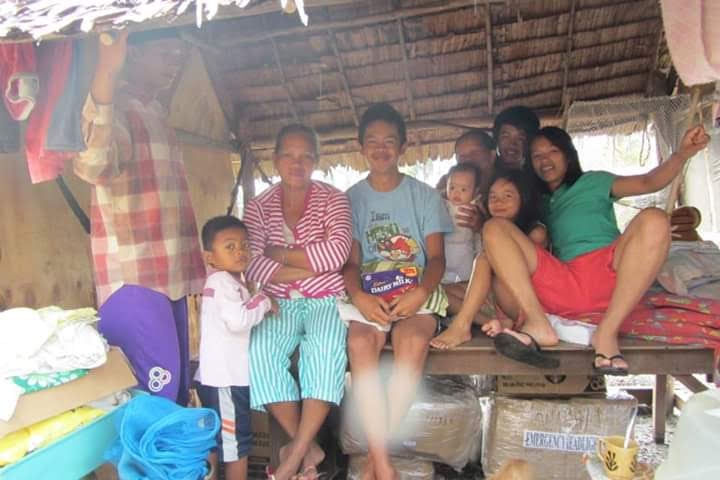
May our voices reach Belém.
May our grief be heard not as pity, but as a demand for justice.
And may this year mark not another cycle — but the breaking of one.
May the lives lost twelve years ago not be left in vain.
May we find continued strength from each other to keep this fight going.
Ronan Renz Napoto is a climate advocate from Eastern Samar, Philippines. A survivor of Super Typhoon Yolanda (Haiyan), he turned his experience into a lifelong commitment to climate justice, disaster resilience, and inclusive development. With a background in industrial engineering and further studies in Development Sociology, he works with Oxfam Pilipinas as a Climate Justice Portfolio Officer and volunteers with Greenpeace Philippines. His advocacy centers on advancing climate justice by promoting equitable access to renewable energy, empowering vulnerable communities, and addressing the systemic inequalities that deepen the impacts of the climate crisis.
You might want to check out Greenpeace Philippines’ petition called Courage for Climate, a drive in support of real policy and legal solutions in the pursuit of climate justice.
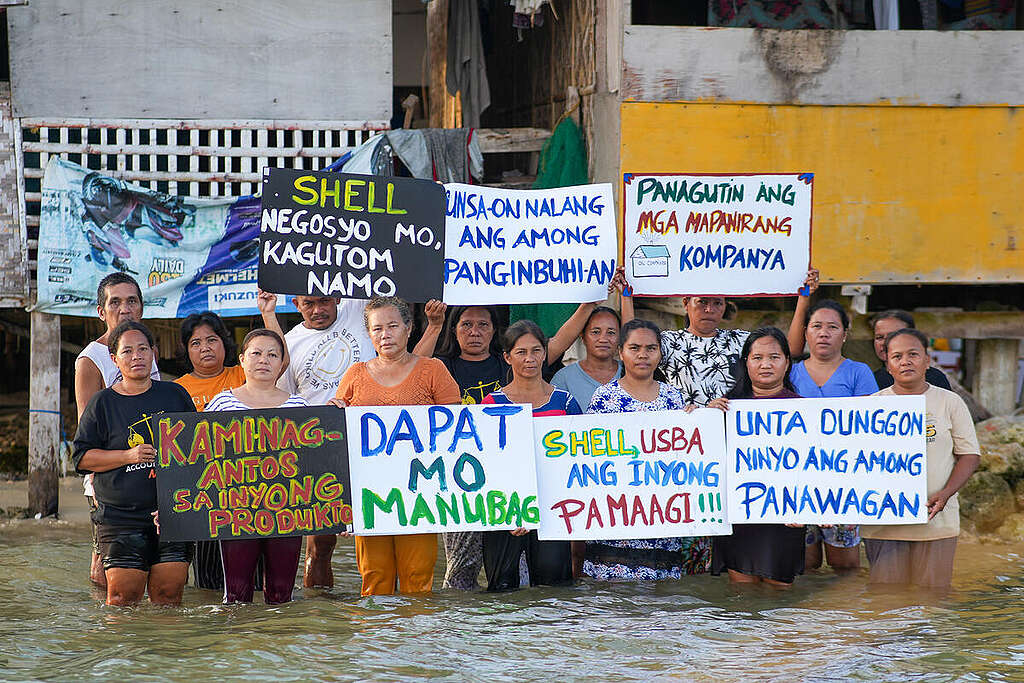
The climate crisis may seem hopeless, but now is the time for courage, not despair. Join Filipino communities taking bold action for our planet.
Make an Act of Courage Today!
